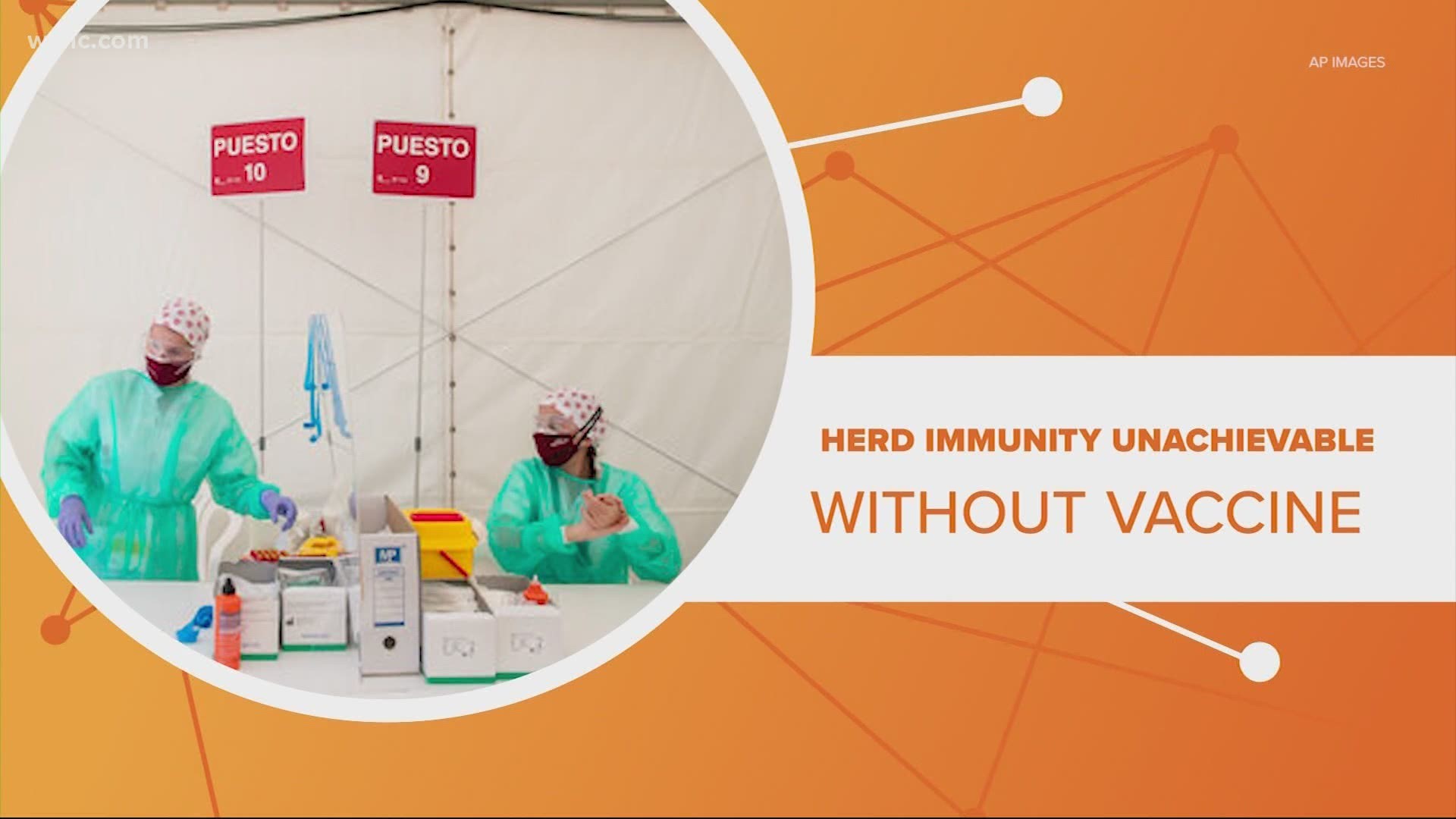CHARLOTTE, N.C. — A COVID-19 vaccine is still months away, and unfortunately, researchers in Spain found that may be the only way to return life back to normal and end the COVID-19 pandemic.
Researchers studied herd immunity when it comes to coronavirus and the results were bad news for ending the pandemic before a vaccine is available. Herd immunity is what happens when enough of the population is exposed to a disease and develops antibodies to fight it.
Dr. Anthony Fauci, the nation's top infectious disease expert, said last month it's "a matter of when, not if" the U.S. has a vaccine
“The typical vaccine for a new virus takes about five years to develop," Pitts said. "So even having a vaccine by early 2021 really is a warp-speed proposition. And the reason that we're getting there is the FDA is expediting it but not rushing," former FDA Associate Commissioner Peter Pitts said.
Vaccines are one of the best ways to achieve herd immunity, and scientists hoped we'd reached that level with COVID-19, even before a vaccine is ready. Now, researchers in Spain have released a large-scale study of coronavirus antibodies.
Despite the country being among those hit hardest by COVID-19, scientists found that only 5% of the country's population developed antibodies. Doctors believe that number needs to reach around 60% to achieve herd immunity.
The researchers now say herd immunity for COVID-19 is basically unachievable without a vaccine. And that's not all; doctors still aren't sure if having COVID-19 antibodies means you can't get infected again.

